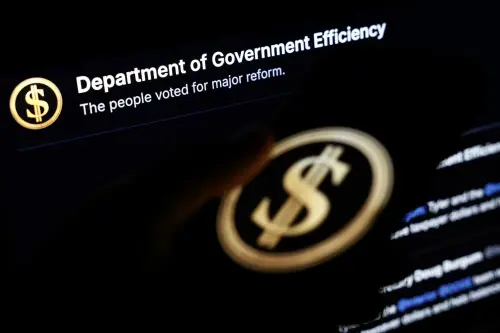Venezuela’s president, Nicolás Maduro is in Moscow this week leading a delegation of businessmen and women. Their intent is to drum up trade and investment in Venezuela. They have little to offer in exchange beyond government support and oil that continues to flow, despite a significant reduction in quantity. However, there is someone that Maduro might take home in his presidential plane, namely Edward Snowden. His flight out of Moscow on the Venezuelan government plane would remove a transit passenger whose presence is becoming an increasing nuisance to President Vladimir Putin. Without any official travel document, except a one-way travel permit back to the United States, Snowden is trapped in a transit room at the Moscow airport (unless the Russians grant Snowden asylum, on the condition that he stop publishing leaks).
An offer of asylum from President Maduro would provide Snowden an escape, but what are the consequences of such an invitation?
Nicolás Maduro leads a country in economic and political disarray. Public expenditures kept the economy growing at 5.6 percent in 2012 in order to boost the prospects of former president, Hugo Chávez re-election. That boost to the economy has ended, with a consequential sharp drop to 0.7 percent growth year on year. The Economist expects annual growth to fall to 0.2 percent this year. Furthermore, the 32 percent devaluation in February 2013 has resulted in a 23.4 percent inflation rate and withering purchasing power. Imports have been cut back with resulting severe shortages of food and consumer goods. Still, the Venezuelan Bolívar remains overvalued. The official rate is now BsF6.3 = $1, but the unofficial rate is BsF25. A special regime was created to enable importers of essential products to buy dollars at a rate weaker than the official rate, but to date the Venezuelan Central Bank has provided only $200 million to the Sistema Complementario de Administración de Divisas (SICAD), a paltry sum given the local demand for dollars.
A joint project with Russian state firms to develop energy and mines could be signed on this visit to Moscow, but the experience with Chinese investors has demonstrated a weak capacity to implement the projects. Russian firms will seek significant enticement to persuade them to invest and they too may insist on bringing Russian project managers, as well as skilled personnel to carry out the joint ventures. The principal source of international financial support remains the International Monetary Fund (IMF), but so far the Venezuelan government has refused to approach the IMF for debt financing, preferring to hurl insults at the neo-liberal and imperialist financial system. That leaves its prime economic lifeline to the sale of its heavy oil to the United States.
The U.S. government has never removed de facto recognition from Venezuela. The two states exist and do business with each other. Therefore, Washington did not consider it necessary to formally recognize the election of Nicolás Maduro in April this year.The silence was interpreted as support for the opposing party’s call for an audit, but the reality was that Washington accepted the results, which gave Maduro a 1.46 percent majority. Washington criticizes the unfairness of the electoral campaign and the failure to provide the Mesa de la Unidad Democrática (MUD) equal time on public media, but it did not deny victory to Maduro and his Partido Socialista Unido Venezolano (PSUV). State relations continue.
Within these relations, Secretary of State Kerry met with Foreign Minister Elías Jaua on the margins of the recent OAS meeting in Guatemala. The report of the meeting indicated that Kerry was firm and insisted that improvements had to be made in specific areas before diplomatic relations at the Ambassadorial level could resume. Among those areas of collaboration was Venezuelan permission for Drug Enforcement Agents to carry out counter-narcotics investigations and improvement of airport security. Without serious progress in these areas, relations with Washington would not improve. More recently, the State Department has sent the message to Jaua through his Charge d’Affaire in Washington, Calixto Ortega, that the grant of asylum to Snowden would jeopardize all bilateral projects.
In appointing Ortega to Washington, bilateral relations had begun to improve. “Ortega has a lot of knowledge of U.S. society, and we know that he will contribute a lot towards increasing dialogue…We want to have the best ties with all the world’s governments, and the U.S. government, but on the basis of respect. There can be no threats,” said Maduro in his April 24th statement reported by www.venezuelanalysis.com. “I have decided to name Calixto Ortega so that dialogue with U.S. society can increase, with the universities, the academic world, the social and union world, the Afro-American community, the Latino community, Congress, senators, representatives, the economic, trade and energy sectors.” Ortega, the former Venezuelan minister to the Latin American parliament was well received at the State Department and hope exists in Washington that bilateral relations can improve on a steady and pragmatic basis.
However, flying Snowden to Venezuela and granting him asylum will blow apart the prospects for improved relations. The recently formed Continental Coalition of Social Movements in support of the Bolivarian Alliance (ALBA) may rejoice that Snowden can operate and speak freely in Venezuela, but the prospects of dialogue with U.S. economic, trade and energy sectors will fizzle out. Without U.S. support, few nations will step in to help meet Venezuela’s rising debt repayments and falling foreign reserves. In deciding whether to give Snowden a way out of Moscow, Maduro must balance the economic wellbeing of Venezuela against the short term notoriety of saving Snowden.
The Brookings Institution is committed to quality, independence, and impact.
We are supported by a diverse array of funders. In line with our values and policies, each Brookings publication represents the sole views of its author(s).



Commentary
Consequences for Venezuela if Maduro Offers Asylum to Edward Snowden
July 2, 2013